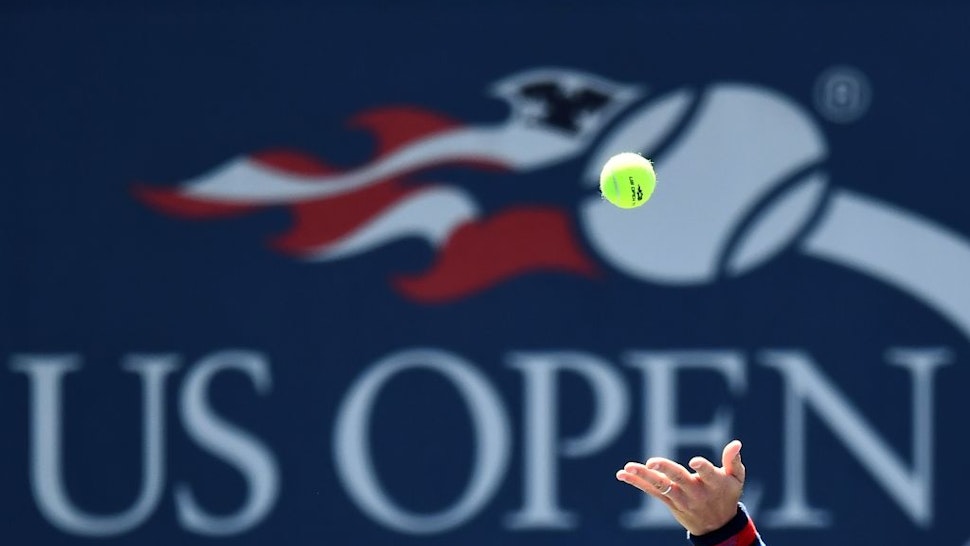US Open To Offer ‘Quiet Rooms’ In ‘Holistic Approach’ To Mental Health

The upcoming US Open may have lost three of their biggest stars in Serena Williams, Roger Federer and Rafael Nadal, but they’re making sure that the athletes that will be playing will have plenty of safe spaces to retreat to should the going get too tough.
On Tuesday, the USTA (United States Tennis Association) announced a new Mental Health Initiative with a “holistic approach” to players’ mental health. “The USTA and US Open are always looking for ways to work collaboratively with the other Grand Slam events, ATP, WTA and ITF to provide the greatest level of support for our competitors,” said Mike Dowse, CEO and Executive Director, USTA. “We recognize that ensuring the mental health of the players is an area that needed to be addressed, and we are taking formative steps to give athletes the necessary resources to compete at the highest level.”
Players will have access to licensed mental health providers throughout the tournament and will even have the ability to enter “quiet rooms” at the US Open.
The topic of mental health for athletes has been at the top of the sports world conversation for the past several months. In June, Naomi Osaka withdrew from the French Open, citing “long bouts of depression” after the 2018 US Open and focusing on her mental health as the reason. She took a break from tennis before returning to the court for the Tokyo Olympics — representing Japan — before losing in the third round. Last week, Osaka was preparing to play at the Western & Southern Open in Cincinnati when she participated in her first press conference since withdrawing from the French Open.
Her return did not go well.
Osaka was asked by Cincinnati Enquirer columnist Paul Daugherty how she balances her media obligations, considering her platform. Osaka was able to answer, but began to cry, forcing her to step away for five minutes in order to compose herself.
The conversation around mental health has not only focused on tennis athletes. U.S.A gymnastic star Simone Biles dealt with her own struggles surrounding mental health at the Tokyo Olympics.
In the women’s team competition, Biles withdrew herself from competition due to a “medical issue” that turned out to be a mental health issue.
“I’ve never felt like this going into a competition before,” Biles said to reporters after the event. “I tried to go out here and have fun. And warmup in the back went a little bit better but then once I came out here…’No. Mental’s not there. So, I just need to let the girls do it and focus on myself.”
“Physically, I feel good, I’m in shape,” Biles told Hoda Kotb exclusively on TODAY after her withdrawal. “Emotionally, that kind of varies on the time and moment. Coming here to the Olympics and being the head star isn’t an easy feat, so we’re just trying to take it one day at a time and we’ll see.”
Her withdrawal and that of Osaka’s became polarizing topics, with each side of the political aisle taking it to one extreme or another.
The US Open appears to be attempting to address the issue in their upcoming tournament, making mental health a part of their normal medical care.
“The issue of mental health awareness has been brought to the forefront over the course of the global pandemic, as many individuals, players included, have struggled with the stresses and emotions that have come as a result of COVID-19,” said Stacey Allaster, Chief Executive of the USTA. “Together with the multi-dimensional pressures within professional sport, this new reality highlighted the need to provide additional resources to support all aspects of athletes’ health, including their mental health and wellbeing. We look forward to seeing how the initiatives implemented at this year’s tournament, and in the coming months, make an impact on player wellbeing, and will continue to look for ways to improve and adapt as we move forward.”
Joe Morgan is the Sports Reporter for The Daily Wire. Most recently, Morgan covered the Clippers, Lakers, and the NBA for Sporting News. Send your sports questions to sports@dailywire.com.
No comments: